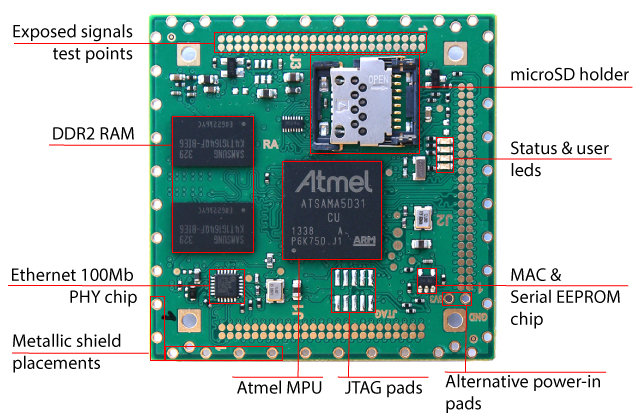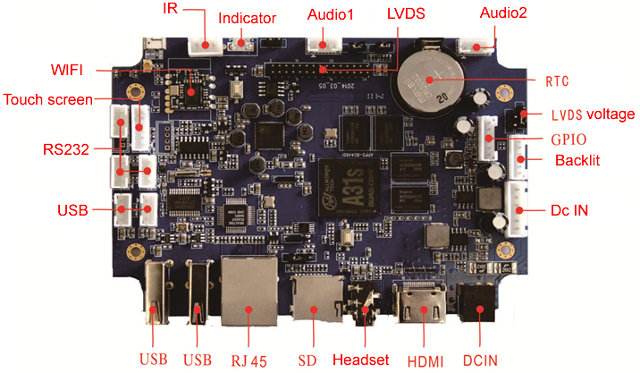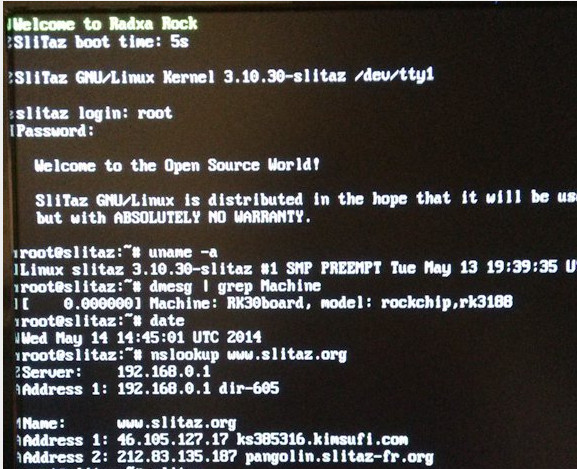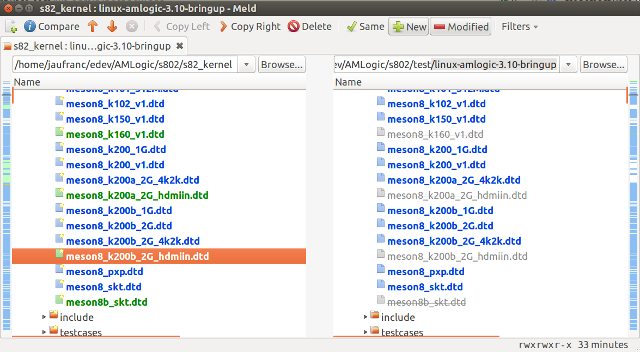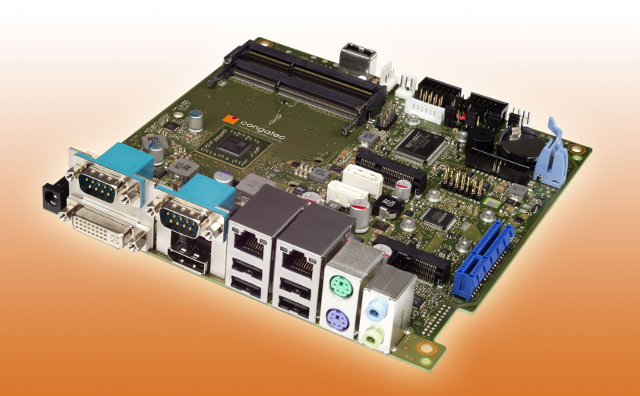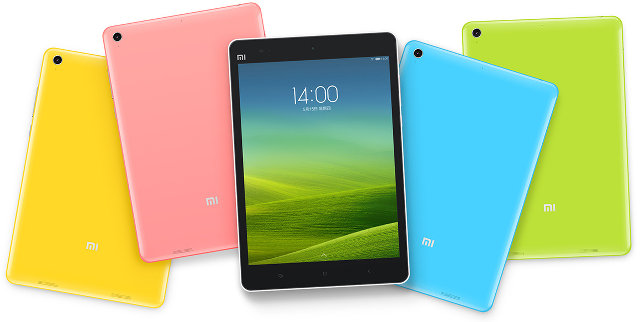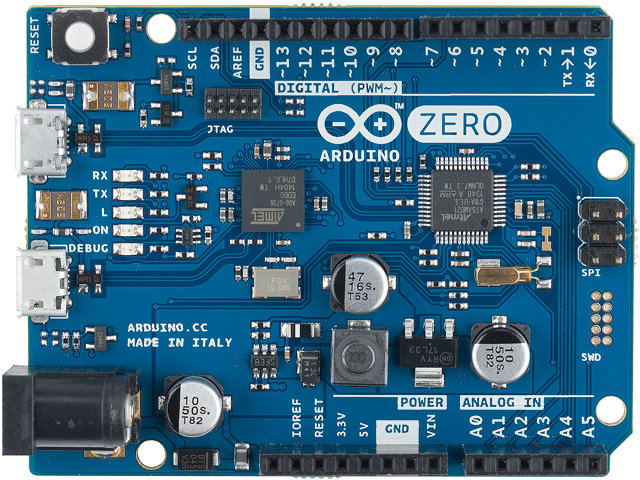Acme Systems has announced availability of their Acqua A5 SoM with Atmel SAMA5D31 Cortex A5 micro-processor, up to 512 MB RAM, up to 256 MB Flash, a serial EEPROM, a micro SD card slot, and an Ethernet PHY. The module targets headless or LCD based system such as automation or control panels, and is available in commercial and extended temperature range. Specifications: Processor – Atmel SAMA5D31 ARM Cortex-A5 MPU @ 536MHz System Memory – 256MByte DDR2 RAM @ 32 bit (optionally 512MB) Storage Embedded micro SD hinge type holder for OS and data Optional 256 MB NAND flash Atmel AT24MAC402 – 2Kbit serial EEPROM Connectivity – 10/100 Mbit Ethernet I/F (can be turned off for power saving) Three USB Host ports (one configurable as USB device) Connectors – 3x 50-pin connectors pitch 1.27 mm (50 mils) Signal accessible via connectors: (Check pinout for details) 10/100 Mbit Ethernet phy RGB I/F […]
Shenzhen DigiCasting LX-N10 Is an AllWinner A31s Powered Board for Digital Signage Applications
Shenzhen DigiCasting, a Shenzhen based company specialized in digital signage solution, has recently introduced LX-N10 board specifically designed to connect to LVDS display for applications such as digital signage players. The board is powered by AllWinner A31s, comes with up to 2GB RAM, and optional 4GB eMMC, and various ports and headers. LX-N10 board (aka DS-108) specifications: SoC – AllWinner A31s quad core ARM Cortex A7 processor @ 1.2 GHz with PowerVR SGX544MP2 GPU System Memory – 1 GB DDR2 (2GB optional) Storage – micro SD slot up to 32GB, and optional 4GB eMMC Video Output – HDMI, LVDS + backlight + touchscreen header Audio – HDMI, 3.5mm stereo jack. Built-in 4R/20W, 8R/10W amplifier Connectivity – Wi-Fi 802.11 b/g/n, 10/100M Ethernet USB – 2x external USB 2.0 host ports, 2x internal USB headers Other Headers – GPIO (3 GPIO, 1 ADC), 3x RS-232 (2x Tx/Rx, 1x Tx/Rx/CTS/RTS), Audio 1 & 2 […]
Ubuntu 14.04 and Slitaz on Radxa Rock
Various Android and Linux images are available on Radxa Rock download page, but if you’d like to get newer images or other options, two developers have provided binaries and posted instructions to get Ubuntu 14.04 and Slitaz operating systems, the later currently booting with Linux kernel 3.10. Naoki FUKAUMI has published a miniroot how-to install a Ubuntu 14.04 Core (minimal headless installation) on Radxa Rock and Radxa Rock Lite. Installation should be relatively easy as he provide the update.img for both board so your can use the usual method in Windows (RkBatchTool) or upgrade_tool in Linux. If you don’t have serial console, you’ll have need to flash the parameter file requiring RkAndroidTool in Windows, and the same upgrade_tool in Linux. If once the installation and configuration is complete, you want a desktop environment,you can always run “apt-get install lubuntu-desktop” to install LXDE. SliTaz is a lightweight Linux distribution. I previously […]
Linux Kernel 3.10.33 Source Code Released for Amlogic S802 (Part of Tronsmart Vega S89 SDK)
We already had the kernel source for Amlogic S802. The previous code found on Amlogic website, and based on Linux 3.10.10. I’ve been informed there’s a new release based on Linux 3.10.33, and apparently the code based used for Tronsmart Vega S89 (aka Beelink M8, S82), and the new Tronsmart Vega S89-H with proper Dolby & DTS support. Beside a new version, the kernel adds support for a new platform called “meson8 baby” and HDMI IN support, as well a several changes in AMlogic source such as GPU cooling.. All device tree files also seem to have been amended mostly with I2C and thermal settings. It is not a full release, and the hardware directory with GPU, TVIN, Wi-Fi, and NAND drivers is not included. Having said that, it should be possible to use the drivers from the previous release. Meson6 (Amlogic AML8726-MX) source code is also included, and appears […]
Hello Klick is a Pressy Android Button Clone that Sells for as low as $2
Last year, Pressy launched a Kickstarter campaign for a physical button that fits into the audio jack of your Android mobile devices, and was sold for $17 in their extra successful campaign. Now you can pre-order a Pressy button for about $27, or a bit less if you order in quantities. Last month, Xiaomi showed a blatant clone of Pressy with their Mi Click that they sell for 4.9 RMB (~0.80 USD) in China. Some sellers are even re-selling the items on Aliexpress for nearly $10. It turns out there appears to be quite a few clones of the Pressy button, including Hello Klick which you can buy for $4 to $5, as even as low as $2 per piece if you order 10 Klicks. And these prices include international shipping. It’s also on Taobao starting at 4.99 RMB. It seems some models come with a stereo jack, whereas others come […]
Congatec Unveils conga-IGX Industrial mini-ITX Boards Powered by AMD G-series SoC
Congatec has recently introduced three new industrial Mini-ITX motherboards powered by dual and quad AMD Embedded G-Series SoCs, namely GX-210HA, GX-217GA, and GX-420CA, all integrated Radeon HD graphics. The company’s conga-IGX embedded motherboards are said to be particularly suited for cost-sensitive visualization and control applications. Congatec conga-IGX specifications: SoC AMD Embedded GX-210HA (2 x 1.0 GHz, L2 cache 1MB, 9 W) with AMD Radeon HD 8210E graphics @ 300 MHz AMD Embedded GX-217GA (2 x 1.65 GHz, L2 cache 1MB, 15 W) with with AMD Radeon HD 8280E graphics @ 450 MHz AMD Embedded GX-420CA (4 x 2.0 GHz, L2 cache 2MB, 25 W) with with AMD Radeon HD 8400E graphics @ 600 MHz System Memory – 2x SO DIMM Socket (1.5V / 1.35V), for up to 16GB single Channel DDR3-1333 (CL9) / DDR3-1600 (CL11) SDRAM, unbuffered, no ECC Storage – 1x mSATA (SATA-III), 2x SATA connectors Connectivity – 2x […]
Xiaomi MiPad is a 7.9″ Tablet Powered by Nvidia Tegra K1 Quad Core SoC
Xiaomi has just announced the MiPad, with a 7.9″ display using 2048×1536 (same as iPad mini) and an Nvidia Tegra K1 quad core Cortex A15 SoC with a Kepler GPU. There will be two versions one with 16GB flash, and the other with 64GB, which will be sold respectively for 1499 and 1699 CNY (~$240 and $275). Here are the specs for the MiPad: SoC – Nvidia Tegra K1 quad core Cortex A15 processor @ 2.2 GHz with a 192-core Kepler GPU System Memory – 2GB LPDDR3 Storage – 16 or 64GB eMMC, extensible to 128GB via microSD card Display – 7.9” IPS display, 2048×1536 326 PPI Camera – 8MP rear / 5MP front camera Connectivity – 802.11ac 2×2 Wi-Fi Battery – 6700 mAh battery Dimensions – 202.1 x 135.4 x 8.5 mm Weight – 360 grams The first tablet by Xiaomi happens to be the first consumer tablet featuring […]
Arduino Unveils Arduino Zero Board Featuring Atmel SAMD21 Cortex M0+ MCU
Arduino and Atmel have jointly announced the latest addition to the Arduino family with Arduino Zero, a development board based on Atmel SAMD21 ARM Cortex M0+ MCU with the same form factor and headers as Arduino UNO / Leonardo. Arduino Zero specifications: Microcontroller – Atmel ATSAMD21G18 32-bit ARM Cortex M0+ MCU @ 48 MHz with 32 KB SRAM, 256 KB flash, up to 16KB EEPROM (By emulation). 48-pin LQFP package. Digital I/O Pins – 14, with 12 PWM and UART Analog Input Pins – 6, including 5 12bits ADC channels and one 10 bits DAC DC Current per I/O Pin – 7 mA USB – 2x micro USB ports Debugging – USB via Atmel’s Embedded Debugger (EDBG) on-board debugger, and JTAG Misc – reset button, 5 LEDs (Tx, Rx, L, On, Debug) Operating Voltage – 3.3V That’s about all we know for now, as tools support (Arduino IDE?), availability and […]


